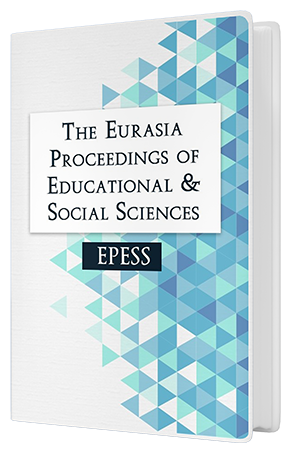USING SLOWMATION AS A TEACHING APPROACH AND ITS EFFECT ON BIOLOGY ACHIEVEMENTS OF PRE-SERVICE SCIENCE TEACHERS
Keywords:
Slowmation, science teacher, pre-service teacherAbstract
Digital technologies offer increasing opportunities for students in primary or secondary schools to create their own digital media. “Slowmation” (abbreviated from “Slow Motion Animation”) is a simplified way of making an animation so that students, themselves, can create it as a new way of learning about some science concepts. In this study, pre- and post-test quasi-experimental design with control group was used with retention test. During the study, for the experimental group of students, additionally to biology instruction, slowmation has been used as a teaching approach. The implementation lasted 9 weeks. The data gathered by an 18 question-multiple choice test. It was developed by researcher and used as pre-, post- and retention test in order to measure students’ biology course achievement. As a result of the research, it was determined that using slowmations as teaching approach for biology instruction increased the students’ biology course achievement more significantly for post- and retention implementations.Downloads
Published
Issue
Section
License
Copyright (c) 2014 The Eurasia Proceedings of Educational and Social Sciences

This work is licensed under a Creative Commons Attribution-NonCommercial-ShareAlike 4.0 International License.
The articles may be used for research, teaching, and private study purposes. Any substantial or systematic reproduction, redistribution, reselling, loan, sub-licensing, systematic supply, or distribution in any form to anyone is expressly forbidden. Authors alone are responsible for the contents of their articles. The journal owns the copyright of the articles. The publisher shall not be liable for any loss, actions, claims, proceedings, demand, or costs or damages whatsoever or howsoever caused arising directly or indirectly in connection with or arising out of the use of the research material. All authors are requested to disclose any actual or potential conflict of interest including any financial, personal or other relationships with other people or organizations regarding the submitted work.




